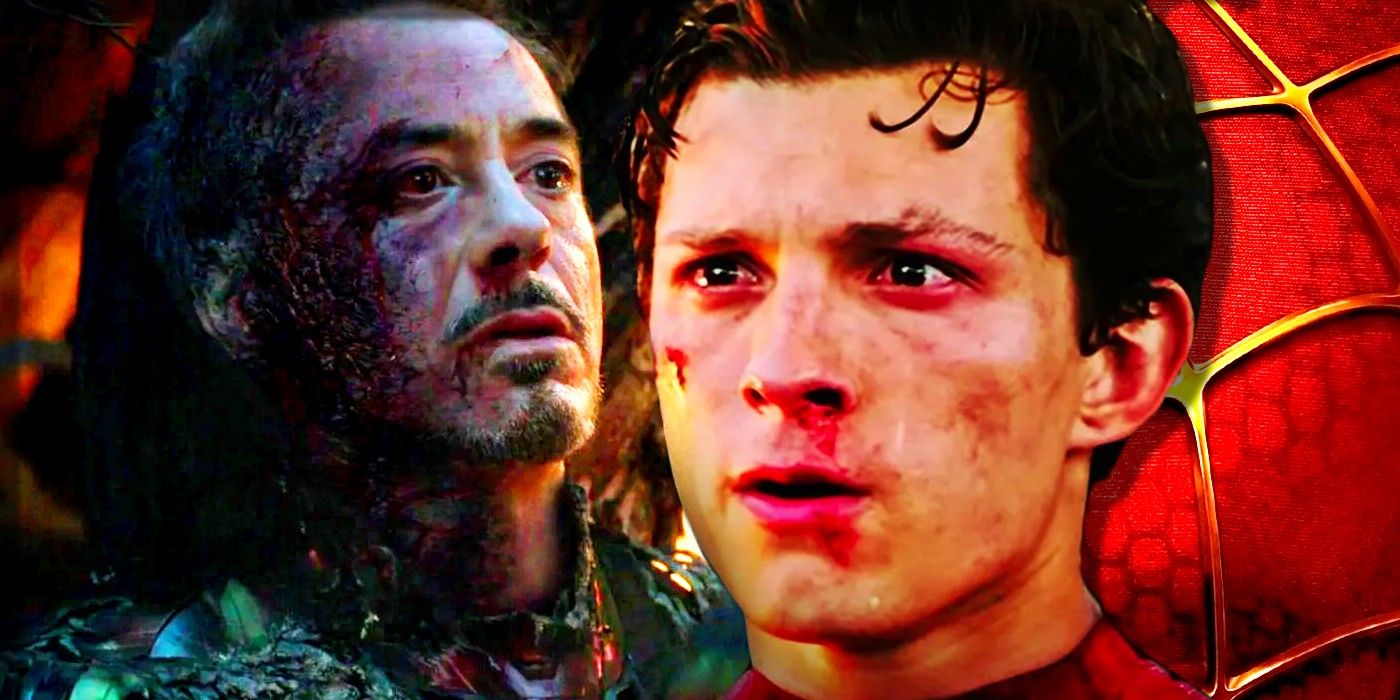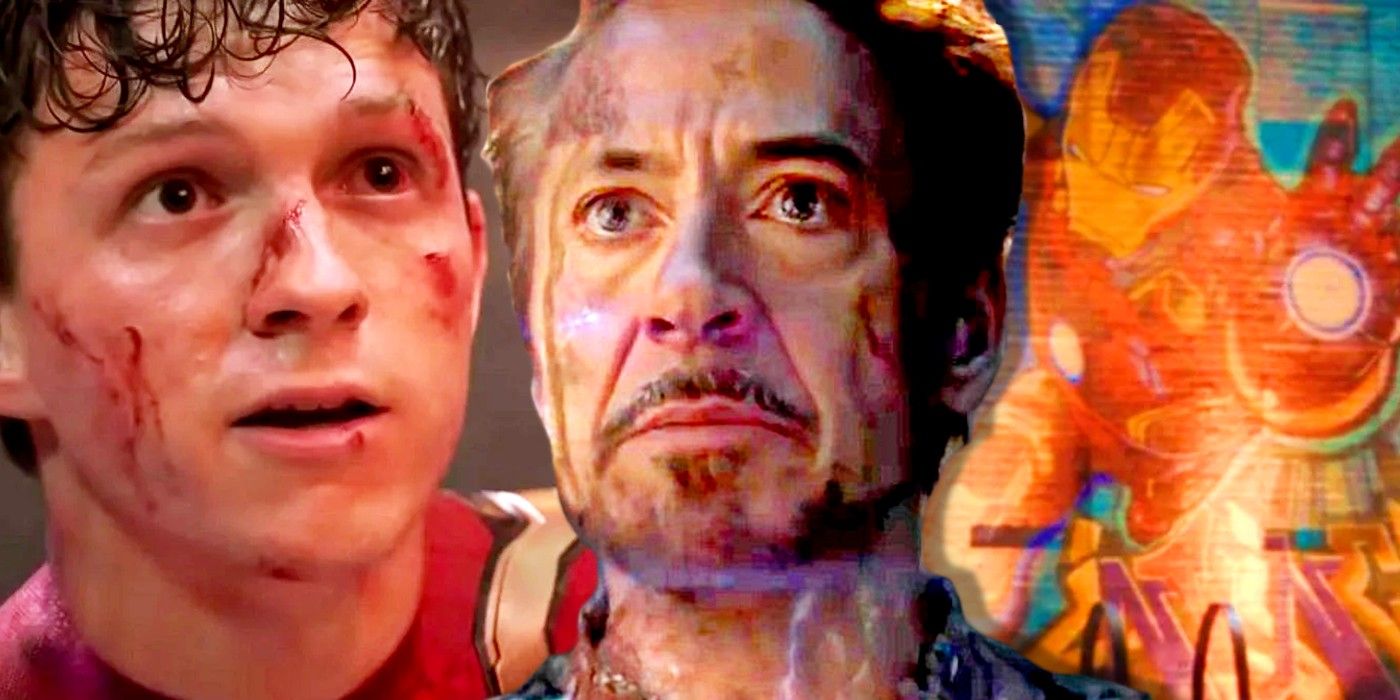Warning: This post contains spoilers for Spider-Man: No Way Home.
The tragic end of Avengers: Endgame, which saw Iron Man sacrifice himself to save the universe from Thanos, perfectly set up Spider-Man: No Way Home's ending. The MCU Phase 3 event movie saw Robert Downey Jr's Tony Stark bow out of Marvel's behemoth franchise, offering his life to use the Infinity Gauntlet to stop Josh Brolin's Mad Titan before he could obliterate all of existence for his warped sense of the Greater Good. And in that moment, Iron Man finally lived up to the role of Spider-Man's mentor.
For the most part, Iron Man's relationship with Tom Holland's Peter Parker was reductive: the MCU's Spider-Man was forced to live in the shadow of Stark, even if his technology provided instant upgrades on Parker's homemade Spidey suits. Despite the concerns that Spider-Man wasn't being able to pilot his own MCU story, Stark also stood in for Uncle Ben, offering sage advice on Peter's responsibilities and attempting to keep him in line. Unfortunately, because of Stark's own shortcomings, he balanced the almost paternal instincts he held for Peter with his patented brand of volatility and some deep inappropriate choices. Not only did he fit Spider-Man's suit with an instant kill mode, but he also pushed him into being an Avenger way too early.
It was only with Iron Man's death that Spider-Man was able to step out of Tony Stark's shadow, but even then his former mentor had a major hand in Peter's life, leading to the entire Mysterio plot of Spider-Man: Far From Home. Not only that, but Peter was saddled with the tag of being the "next Iron Man". Whether he becomes that or not in future remains to be seen, but Spider-Man's self-imposed isolation at the end of No Way Home arguably makes him more like Iron Man than he ever had been. Even more crucially, Peter Parker's altruistic decision to completely wipe himself out of the memory of his loved ones in the name of protecting the universe feels like the final, valuable lesson of Tony Stark's life. And it was borne out of Iron Man's final moments in Avengers: Endgame - in death, Tony Stark gave Peter the mentor guidance he needed to save the world in No Way Home.
Though Holland's Peter Parker never met the earliest, roughest version of Tony Stark, as a role model, the biggest lessons Iron Man would have offered through his own life experiences would have been about sacrifice and doing whatever it took for the Greater Good. Iron Man had almost sacrificed himself to end the MCU's Battle of New York, was willing to die to prevent Thanos from enacting his plan in Infinity War, and had willingly subjected his fellow Avengers to the Sokovia Accords in the name of the "bigger picture". He may have been reckless and his personal life choices (before he allowed himself to settle) were not the greatest example to a teenager, but the MCU's Iron Man lived a life incredibly close to Spider-Man's most famous motto: "with great power must come great responsibility."
While Tony's sacrifice at the end of Avengers: Endgame was his bite back against Captain America questioning his altruism in The Avengers, it also served the higher purpose of inspiring Peter Parker to do the most difficult thing he possibly could. Spider-Man's decision to rip out his own heart in No Way Home was just like Iron Man's willingness to put aside his family in Endgame to stop Thanos, or to give his life up the other times he'd willingly looked to sacrifice himself in the MCU. Yes, it may have been painful for Peter, but making that kind of ultimate sacrifice was a testament to what Iron Man had meant to him and how much he'd impressed his morals onto the young Avenger.







